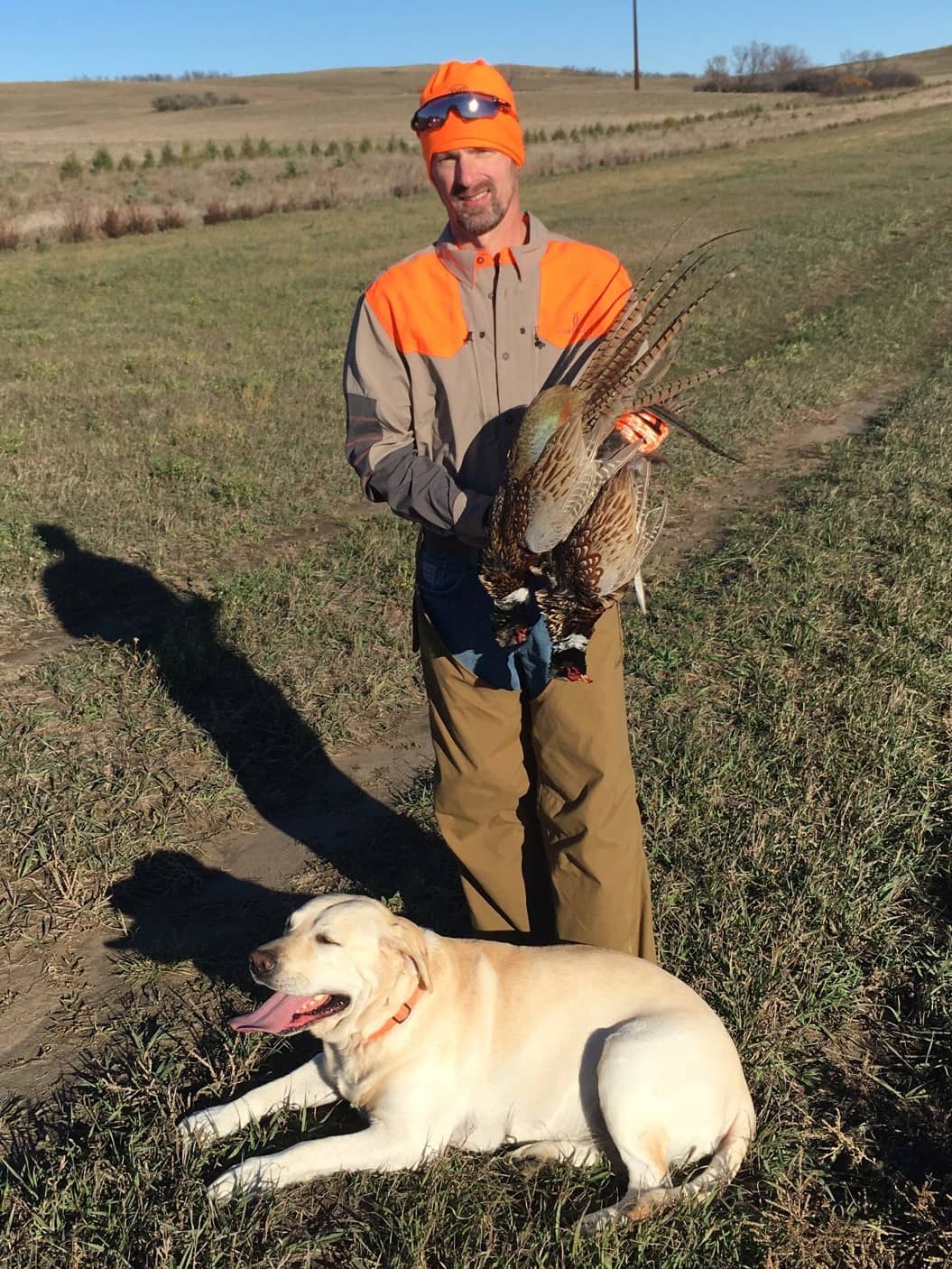
The author’s friend found success on a small stretch of habitat, doubling up on this pair of rooster pheasants in the wind. Simonson Photo.
By Nick Simonson
When it comes to the outdoors, I’m not a huge traveler.
I find contentment and more importantly, excitement, close to home with the opportunities I have nearby. Whether that’s plying the breaklines for walleyes, casting to rising trout on a stocked lake, or working public parcels with my dog for pheasants, much of the joy I experience in fishing and hunting comes within an hour of my home. However, that home and thousands of others up and down the streets around me, likely harbor sportsmen who are looking for the same satisfaction from their efforts in the field as well. With that, we all face the first of many challenges, and that is access to a limited resource.
Public lands are at a premium where I live, with many of those parcels and open-access acres frequently visited by me and other hunters looking to stretch our legs and raise our shotguns from time to time. So it was the case this weekend, as a visiting hunting buddy who had traveled a long distance and I set out in search of success in the uplands. Surprisingly, for the last weekend of October and the gusty conditions, we saw a good number of hunters about, looking to get into the same grasses, cattails and treelines we were aiming for, those ones that more likely than not held the season’s remaining populations of pheasants and grouse.
In the moment, competition like that can seem like a challenge, but in the grand scheme of the outdoors, it’s a good thing to know that others who enjoy the opportunities provided by a WMA or a WPA or a parcel of private land open to hunters, appreciate those opportunities and hopefully somewhere down the line, will become advocates for them. In that challenge of finding access with like-minded hunters, there is the realization that the future of sustained public lands and good access for sportsmen has a strong foothold within that group.
I wouldn’t say I’m a fair-weather hunter, I’ve been out in some bitter cold and heavy snow tromping after roosters in December sloughs and waiting for a deer to wander by my perch. Generally though, I pick more hospitable conditions now than in the invincible days of my youth. With my friend visiting, however, we took what Mother Nature gave us – which included gusty winds from both directions throughout the extended weekend – and made the most of it. Sometimes, the gales were so strong it was tough to hear the cackling of a rooster that on a calm day would have echoed over the county after rattling every cattail in the lowlands as he got up.
For those birds that took the wind, they were gone in a wingbeat, for others, like the two back-to-back sharptails that rose into it, they provided slow-motion shots so beguiling, I managed to expend four shells as my focus shifted and I attempted to ride the rising birds. While we missed our share of grouse and pheasants on the gusts, we did manage to bag a good number that made up for the red faces brought on by the windy conditions, and perhaps from few easy shots we didn’t convert.
Which brings me to the final challenge, the one in the space between my ears. Hot streaks come and cold streaks go, it’s an ebb and flow that anyone of any level of consistency in the field experiences at some point and to some degree each season. To shift from the challenging second day of our trip, hitting two out of six birds shot at, to going three-for-four and being done on a single parcel the following outing, is just part of the game.
Somtimes the hunt is about putting a bad round of shooting behind you and focusing on the next bird, converting on one of those misses that should have been a gimme the day before to start that process.
Then it seems the harder shots become easy, and the shift is on. The challenge remaining then is to ride the hot streak as long as possible.
Between all these trials – be they the ones from Mr. Hanson’s eighth grade English class of man versus man, man versus nature, man versus himself, or all of the above – comes the great reward of being a sportsman in these modern times.
Effectively navigating the landscape, adjusting to the conditions, and overcoming the uncertainty of the psyche make for a better experience now and in the future, building a contingent that appreciates opportunity, is resilient in its efforts, and is of a solidly forged mindset which only comes by regularly taking on these little challenges…in our outdoors.
